From 18 May onwards, in order to adapt to common custom, Camillus had been in the infirmary. Physicians were consulted. He took away their embarrassment and anticipated their conclusion: ‘I am old and I am declining. From my sore comes so much matter that with one pound every day, within a year there would be more than a barrel and a half of humour…God can do miracles but I believe that I will not get better’.
An infinite number of religious, of all Orders, filed past his bed. To Father Ferdinando de Santa Maria, the Superior General of the Discalced Carmelites, he confided: ‘Father, pray for me and make people pray for me so that I can do good during this last step of life. And this I pray you with my knees on the ground, because I have been a great sinner, gambler, man of the bad life’. To a novice who was to make his profession on the following day he commended: ‘Brother, when you have made your profession and offered it to God through the holy vows immediately remember to pray for me, a miserable sinner. Pray for this monster full of defects and without spirit. Pray that the Lord grants me the grace of saving me’. Those who had seen him enter the infirmary, supported by two companions, were struck: ‘Moving very bent, with his head almost touching his knees…In the infirmary he could listen every morning to Holy Mass and attend rigorously to the practice of the Rules. As long as he could he strove to say the breviary with the help of a companion. When he could no longer do this. He asked some times in charity to some of his priests to say it in his presence (M. Vanti).
He received viaticum in solemn form from the hands of Cardinal Ginnasi on 2 July. After the ‘Domine non sum dignus’, he added: ‘Lord, I confess that I have done nothing of good and that I am a miserable sinner, thus there remains to me only the hope of your mercy’. He then asked his confessor not to allow any stranger to come in because he wanted to prepare himself for dying in peace. To Father Marcello who insisted that he receive certain gentlemen he said: ‘Apologise to these gentlemen for me. I have already taken the holy oil and I want to withdraw a little into myself. Father, these gentlemen come for the comfort of their souls. Father Marcello you only die once and I must seek to die well, and this I hope to do with the help of my Lord’. It was Sunday 13 July: he asked that his ‘Spiritual Testament’ be tied to his body after his death and buried with him. He had it read out loud. It was the solemn farewell to his own body, on the eve of his death- At the end of the day he declared: ‘This is the last night’. At dawn, 14 July, the feast of St. Bonaventure, he wanted the Mass to be celebrated hurriedly: ‘it will be the last that I hear’. At the ‘memento dei vivi’ he drew on what little voice he still had left: ‘brothers, help me. The time has come: prayer, prayer now, so that the Lord saves me’ He wanted them to go to certain monasteries that he referred to ask for prayers. Every so often he sighed: ‘how long this day is’. He thanked his physician: ‘another physician is waiting for me!…I am awaiting the call of the Lord’.
After reassuring his brothers and filled with very great fervour he fell into a deep silence; then, coming out of it, he said: ‘My fathers and brothers, I ask mercy from God and forgiveness from the Father General here present and everyone for the bad example that I have been able to give, assuring them that everything came more from my not knowing than from ill will. Lastly, as regards what is granted to me by God, as your father, in the name of the Most Holy Trinity and of the Most Blessed Virgin, I give to you, to those who are absent and to those of the future a thousand blessings’. Everyone embraced him, stifling their sobs with difficulty. He did not stop praying. At the Hail Mary of the evening, he said the Angelus. They offered him some broth. He refused with the apology ‘Wait another quarter of an hour. Then I will refresh myself’. These were the last words before he began to die. Everyone hurried to receive his ‘commendation’. With the prayer ‘meek and festive may Jesus Christ show you his face’, Camillus lit up for a moment and united his last smile to his last breath. He had known that face for some time. It was 21.30, 14 July 1614.
Camillus was sixty-four: he had fought the ‘good battle of charity’.



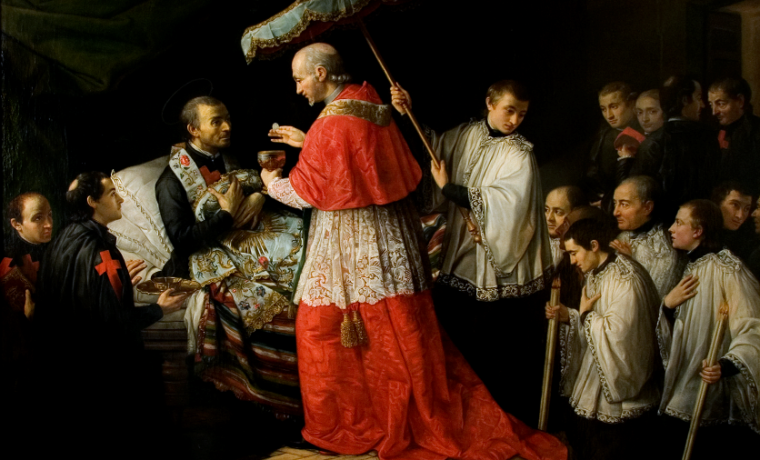
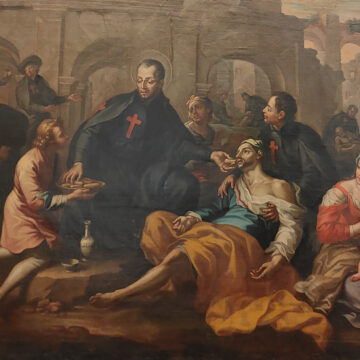

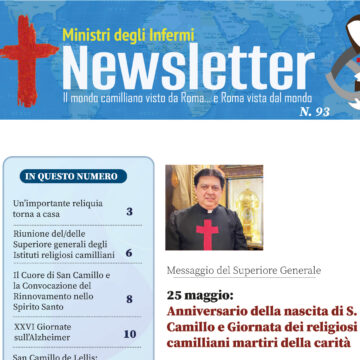
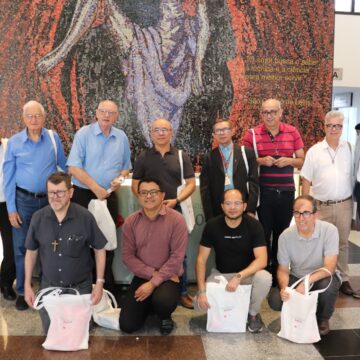
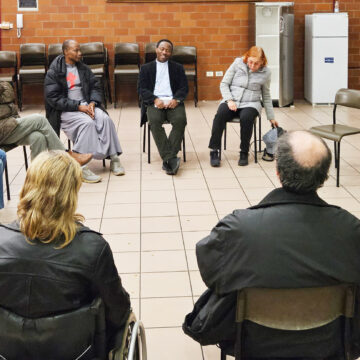
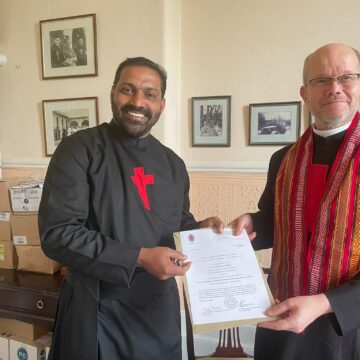
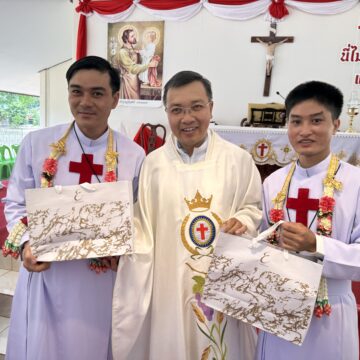
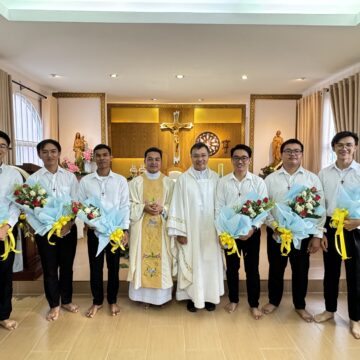
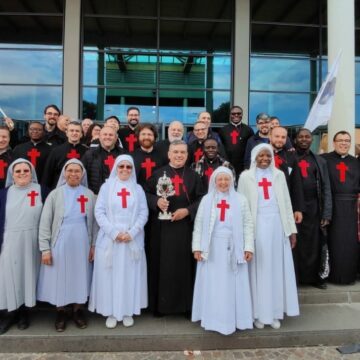
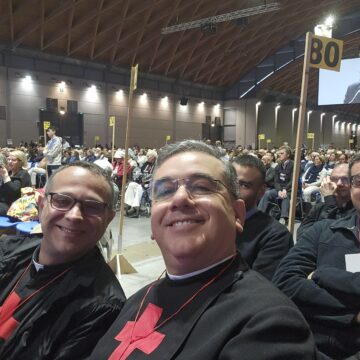
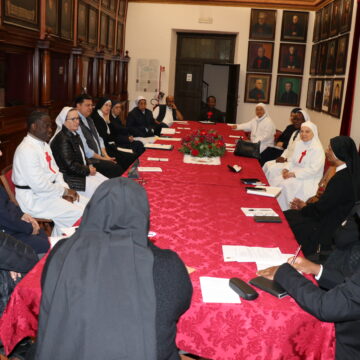


Camillians on Facebook
Camillians on Twitter
Camillians on Instagram